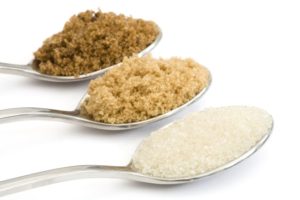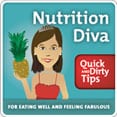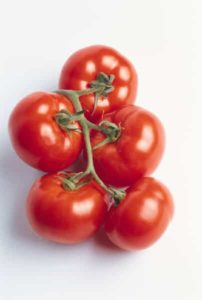Q. In a recent interview, you mentioned cutting back on added sugar as one of the most important things you can do to improve your diet. I noticed you didn’t mention the importance of limiting sodium. Do you think the concerns over sodium are over-blown?
A. In a word, yes. In the recently released 2010 Dietary Guide for Americans, they really came down hard on salt, stressing the need for all Americans to reduce their sodium intake. Given all the things about the typical American diet that could use fixing, I thought it was a little odd how much emphasis they put on this. (Obviously, the salt lobby was asleep at the switch during the hearings…)
The rationale for universal sodium restriction rests a string of loosely related statistics:

 Q. Are you familiar with Dr. Robert Lustig’s presentation on fructose, called “
Q. Are you familiar with Dr. Robert Lustig’s presentation on fructose, called “
 Q. I read recently that the consumption of caffeine prior to exercise will assist the body in using body fat as fuel, up from 21% to 40%. The remaining fuel comes from stored carbs. Any truth to the story?
Q. I read recently that the consumption of caffeine prior to exercise will assist the body in using body fat as fuel, up from 21% to 40%. The remaining fuel comes from stored carbs. Any truth to the story? 
 Q. What’s the deal with nightshades? Why are they supposedly bad? I love eggplants and tomatoes but wonder if I should limit my consumption of this group of foods.
Q. What’s the deal with nightshades? Why are they supposedly bad? I love eggplants and tomatoes but wonder if I should limit my consumption of this group of foods. You’ll find lots of articles in the popular press about the value of anti-inflammatory diets. But many of them perpetuate certain myths about food and inflammation–in particular, that red meat is inflammatory and chicken is anti-inflammatory. I think that’s because many people simply assume that all the foods that we’re used to thinking of as “healthy” are anti-inflammatory and foods that we have been trained to view as “unhealthy” are inflammatory. In reality, the research on foods and inflammation challenges some of these assumptions.
You’ll find lots of articles in the popular press about the value of anti-inflammatory diets. But many of them perpetuate certain myths about food and inflammation–in particular, that red meat is inflammatory and chicken is anti-inflammatory. I think that’s because many people simply assume that all the foods that we’re used to thinking of as “healthy” are anti-inflammatory and foods that we have been trained to view as “unhealthy” are inflammatory. In reality, the research on foods and inflammation challenges some of these assumptions. Q. Makers of coconut sugar claim that it has a low glycemic index and is high in potassium and some other minerals. Would using coconut sugar make my cookies the healthiest on the block?
Q. Makers of coconut sugar claim that it has a low glycemic index and is high in potassium and some other minerals. Would using coconut sugar make my cookies the healthiest on the block?